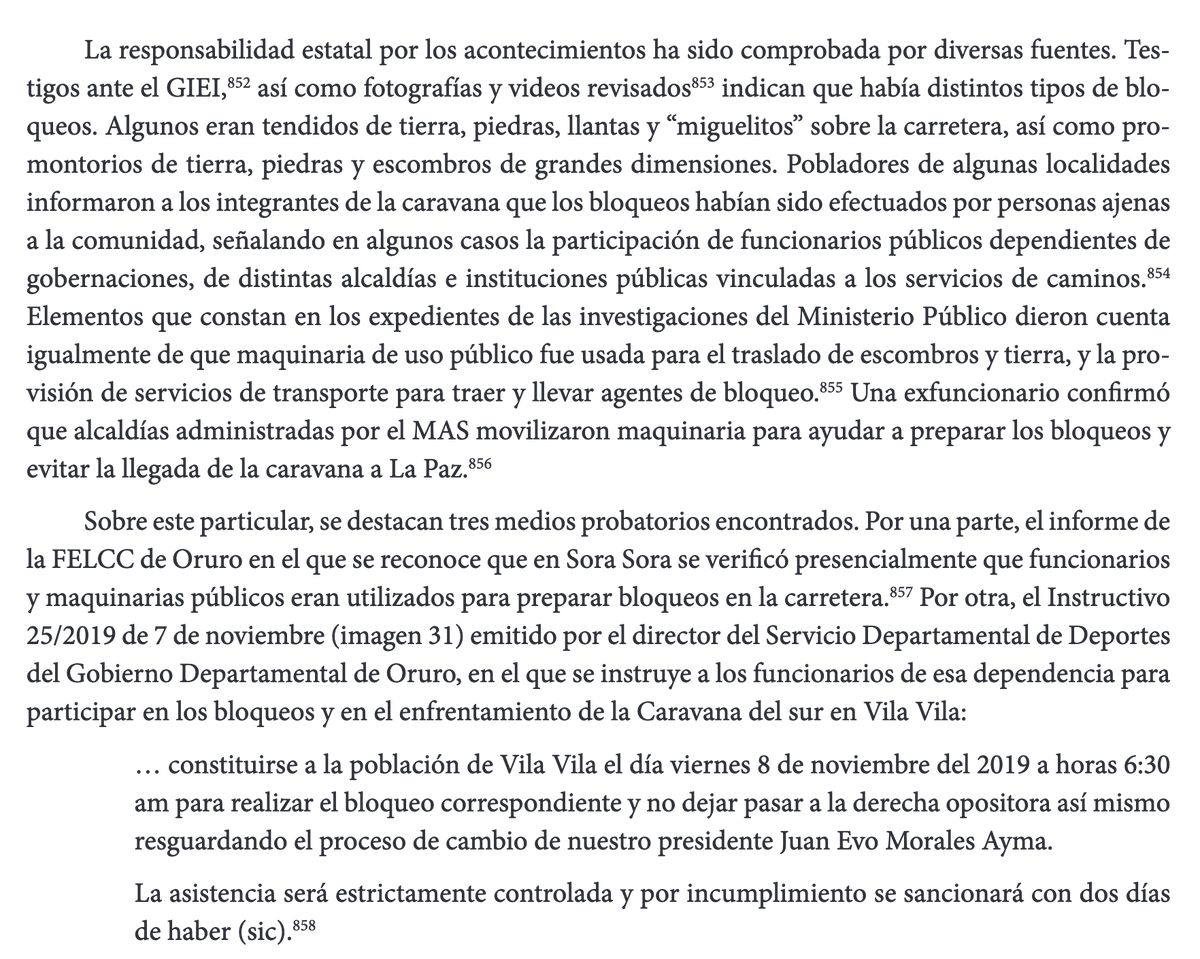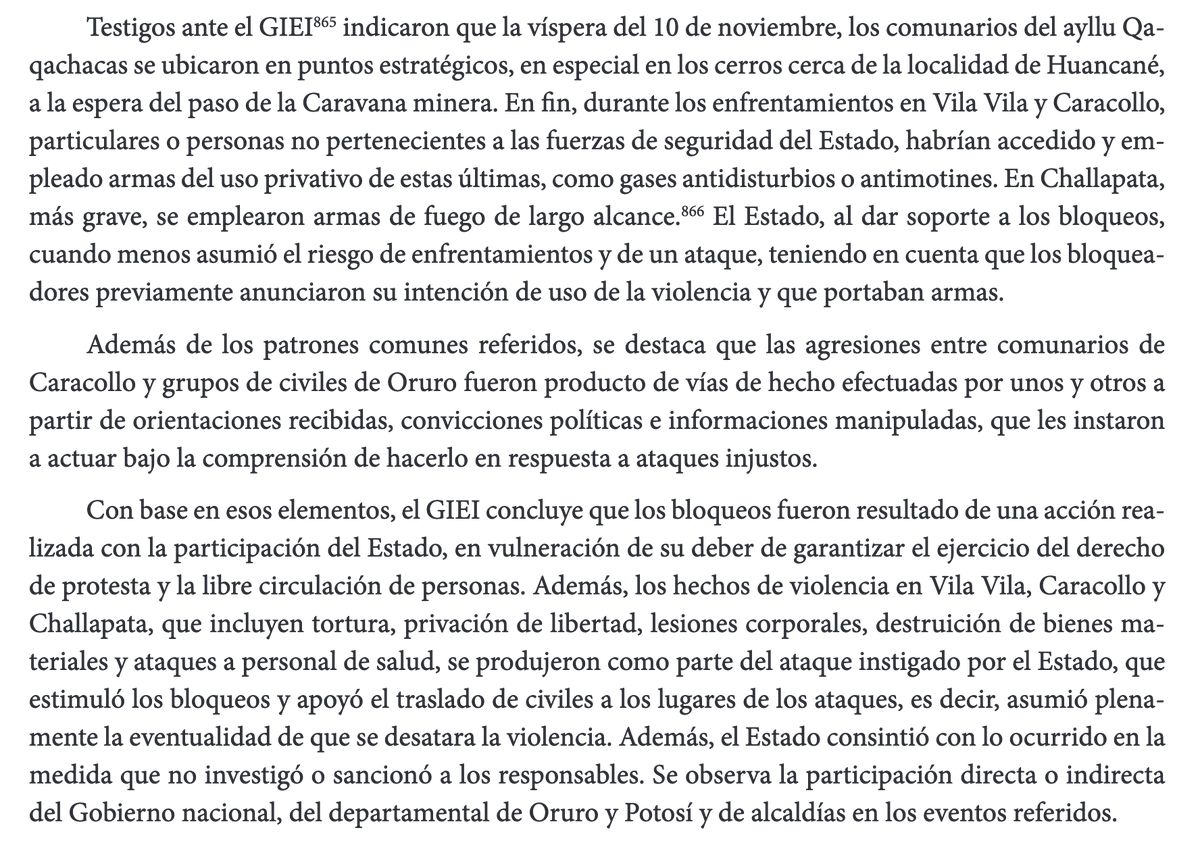-
While the attacks on two caravans to La Paz were reported, the #GIEIBolivia report documents the participation of MAS-IPSP officials on the national, departmental, and local levels, up to and including providing weapons.
-
Least surprising is MAS-IPSP officials' support for pro-MAS blockades designed to prevent the caravan from arriving in La Paz. This is a conventional element of Bolivian political conflict.
-
Challapata municipal authorities aided the Qaqachaca and Layme ayllus in staging a blockade, providing food and transportation. Prosecutors allege the same by municipalities of "Llallagua, Uncía y Chuquiuta."
-
(Historical note: The MAS-IPSP brokered a lasting peace between Qaqachaca and Layme after at least a decade of deadly conflict that claimed dozens of lives.)
-
GIEI: Four witnesses testified that the Qaqachaka staked out the Huancané hills to await the Miners Caravan.
-
GIEI: "During the confrontations in Vila Vila and Caracollo, private individuals and those not belonging to the state security forces accessed and used security force weapons, such as tear- and antiriot gas. In Challapata, more gravely, they used long-range firearms." (168)
-
GIEI concludes that "the blockades resulted from an action realized by the State, in violation of its obligations"; the violence against the caravans "was producted as part of the attack instigated by the State…"
-
Therefore the Morales government "fully assumed the eventuality that violence would be set off." The GIEI notes "the direct or indirect participation of the national government, the Oruro and Potosí departmental governments, and of the municipalities" in these events.
-
Second historical note: The MAS-IPSP role in the attacks on caravans from Potosí and Sucre led directly to Potosí's governor and Sucre's mayor resigning. Potosí's mayor declared himself allied with the anti-Evo movement in response. @CarwilBJ/1193258521938149376

